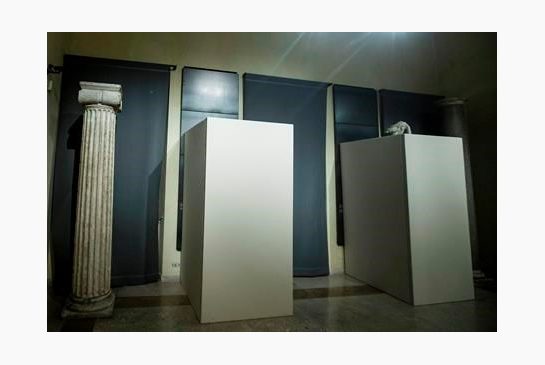
The kerfuffle over the decision by Italian authorities to cover up statues of nude figures during the visit this week of Iranian President Hassan Rouhani isn’t quite finished.
The initial uproar was sparked after the Iranian president toured the Capitoline museum alongside Italian Premier Mateo Renzi. The institution houses some priceless objects of Roman antiquity — including a number of classical marble specimens that the museum had concealed with plywood boxes and panels. The move was supposedly done so as not to offend the sensibilities of Rouhani, who, after all, is a former cleric and part of a theocratic regime in Tehran.
Iranian officials, including Rouhani, seemed bemused about it. And it was soon pointed out that Italy followed this practice for earlier visits from other Muslim dignitaries, including the crown prince of Abu Dhabi last October.
“This is a media issue and journalists want to write about this,” Rouhani later told reporters in Paris. “I have nothing specific to say about this, and I did not have talks about this with anyone. But I know this: The people of Italy are very hospitable and want their guests to enjoy themselves.”
But not all are done complaining.

The head of the Syrian Catholic Church saw signs for concern in the decision. “This is our culture. If you don’t want to see it, close your eyes!” Patriarch Youssef III Younan told reporters in Rome on Thursday.
He was speaking during a talk in the Italian capital about the persecution experienced by Iraq and Syria’s Christians, many of whom have been targeted by Salafist militant groups in recent years.
“This gives a lot of pain to us Christians who have remained, seeing our brothers, who are ready to forget everything for reasons of humanitarian interests, or opportunism,” he said, implying that majority Catholic Italy should have taken a stronger stance during Rouhani’s visit.
The remarks are somewhat curious given the cleric’s own political leanings. He has cautiously backed Syrian President (and staunch Iranian ally) Bashar al-Assad, whose nominally secular regime some argue is the last defense for the country’s religious minorities.
During the same visit, the patriarch argued that the havoc and instability unleashed by the U.S. invasion of Iraq in 2003 was to blame for much of his constituency’s present suffering. Iraqi Christian priests have made similar claims.
“Western media speak about the ‘monstrosities’ of Assad, saying he’s killed 100,000 Syrians,” Younan said. “But they don’t speak about the 1 million people who died in Iraq as a result of the allied military intervention in 2003. It’s all been forgotten.”
The Washington Post

Leave a Reply
You must be logged in to post a comment.